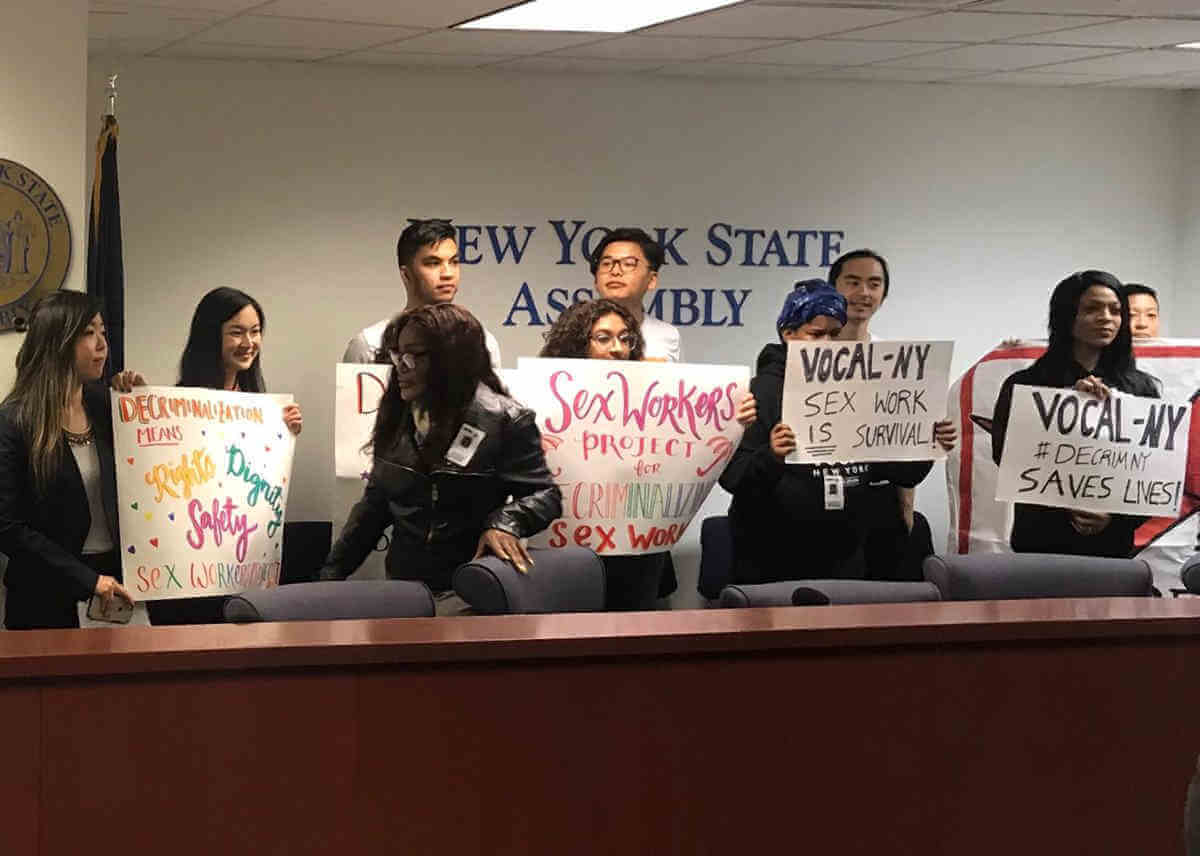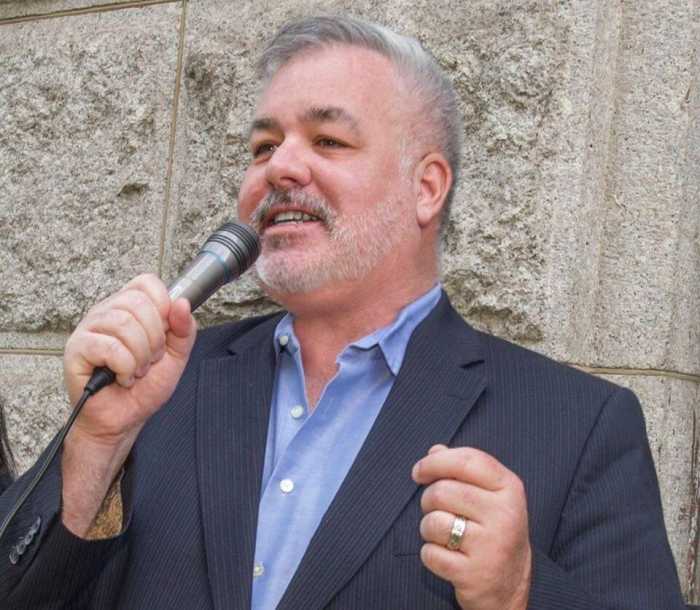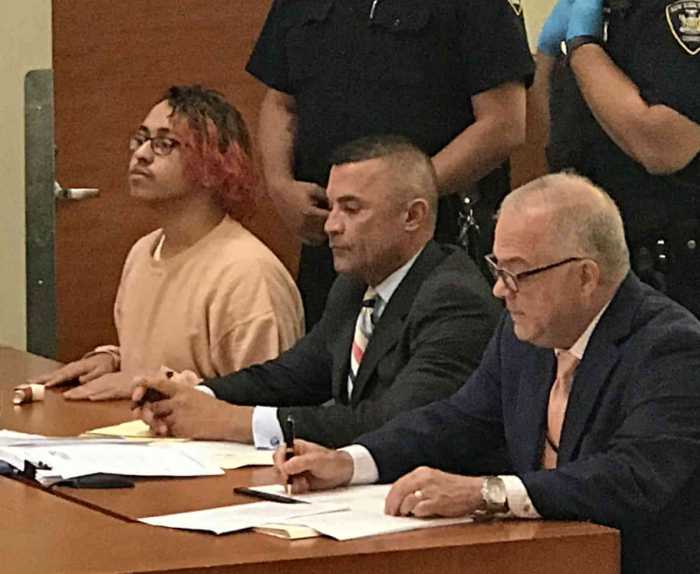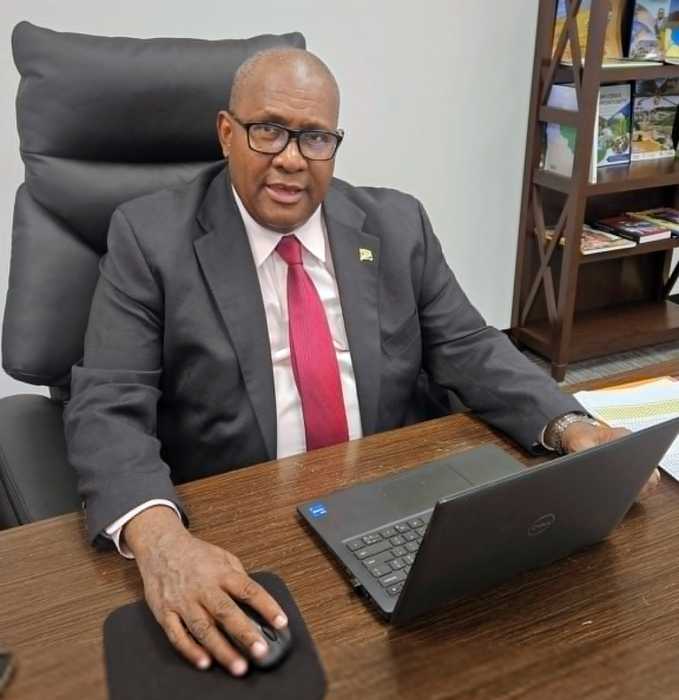The recent passage of legislation repealing the “walking while trans” ban marked a major step forward for advocates of sex work decriminalization, but that measure is in the rear-view mirror — and now it’s time for lawmakers as well as the media to get specific on comprehensive sex work decriminalization.
Last summer, Mayor Bill de Blasio offered a vague response when asked about his stance on sex work decriminalization, which is one of the most prominent LGBTQ issues in New York City. A year later, the mayor is largely singing the same tune: While he now says the NYPD should stop arresting sex workers and is encouraging the State Legislature to take action on sex work reform, he won’t answer questions from Gay City News about his stance on full decriminalization or on proposed state legislation that would broadly decriminalize consensual sex work for all parties involved.
This distinction between ending sex worker arrests and full decriminalization is an important one because many sex workers at the forefront of decriminalization advocacy have consistently made clear that true sex work reform means removing criminal penalties for not just sex workers, but also for buyers and others who facilitate sex work. Why? Because if some parties are being policed, there is a risk of police interaction among other parties — including the sex workers themselves — and any risk of police engagement further pushes sex work underground. This, in turn, hampers efforts to address trafficking, which is where criminal justice efforts should be focused.
Yet even though de Blasio has not gone as far as voicing support for comprehensive decriminalization, his endorsement of some reform prompted media outlets to run headlines incorrectly stating that the mayor is on board with decriminalization. That could send conflicting messages to constituents and sex workers — and it shows the effects that such vague messaging has on public perception of the issue.
De Blasio’s approach is representative of a pattern among many other elected officials who have been reluctant to clarify their position on the issue. For a little while, the “walking while trans” battle bought them some time to put off clarifying their stance on comprehensive decriminalization. Politicians rightfully jumped on board the legislative effort to repeal the “walking while trans” ban because it was a no-brainer bill that wiped out an old loitering law used to discriminate against transgender individuals of color for baseless reasons. The limited scope of that repeal allowed electeds to show their support for a sex work-related issue without going all the way.
Sex work decriminalization advocates now have a prime opportunity to ramp up pressure on lawmakers to take the plunge and embrace full sex work decriminalization or run the risk of misleading their constituents.
All indications point to de Blasio backing an approach that only calls for reducing penalties for sex workers. One of the state lawmakers championing this approach is Senator Liz Krueger of Manhattan, who was, according to several media outlets, planning to propose a bill, dubbed The Sex Trade Survivors Justice and Equality Act, that would remove criminal penalties for sex workers. It has been approximately two months since some outlets and advocacy groups stated that it was already introduced, but it turns out that has not happened — something confirmed to Gay City News by a Krueger spokesperson.
Other elected officials, most importantly in the New York State Legislature, have made it abundantly clear they support full decriminalization — and this brings some much-needed transparency to their constituents because the state, not the city, will determine what legal reforms are enacted.
A bill that would comprehensively decriminalize sex work is led by Brooklyn State Senator Julia Salazar and is co-sponsored by out gay State Senator Jabari Brisport and his Brooklyn colleague Zellnor Myrie, Robert Jackson of Manhattan, Jessica Ramos of Queens, and Gustavo Rivera and Luis R. Sepúlveda of the Bronx. State Assemblymember Richard Gottfried of Manhattan is carrying that legislation in the Assembly and has the support of 14 lawmakers, including out gay Assemblymember Daniel O’Donnell of Manhattan. Many other lawmakers across different levels of government have also voiced explicit support for comprehensive decriminalization.
But some other elected are avoiding the issue entirely — and sloppy reporting in the media further confuses what the real debate is about. Rather than dancing around the question, political leaders should do their constituents and sex workers a favor and get to the point.
To sign up for the Gay City News email newsletter, visit gaycitynews.com/newsletter.



































